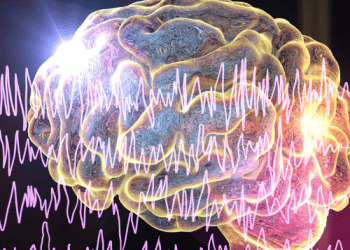
Staff members who are in charge of providing care for patients with epilepsy, including managing the related medication, are the target audience for this course on epileptic medication.
Staff members who are in charge of providing care for patients with epilepsy, including managing the related medication, are the target audience for this course on epileptic medication.
We’ll help you find the right course for your needs. Tell us a little bit about your situation and what you would like to achieve.
We’ll get back to you within one working day.
We can deliver this training at your premises, as long as it’s within the UK. Also, we have our own venues in UK if you need access to a training room (additional charges will apply). We can also deliver this training virtually using Zoom. However, sessions delivered via Zoom will be theory only and will not include any practicals.
With the help of our Epilepsy Medication Training course, you will gain the necessary information and abilities to assist people with epilepsy in an efficient manner. Find out about the many forms of epilepsy, its causes, and the most effective strategies to treat and manage them. Learn the value of maintaining correct records and how to construct thorough care plans. This course guarantees the safety and well-being of individuals with epilepsy and equips you to care for them more effectively. Staff members who are in charge of providing care for patients with epilepsy, including managing the related medication, are the target audience for this course on epileptic medication. The training will also cover epilepsy awareness, including the many kinds of seizures.
This course gives you a deep understanding of epilepsy, so you can provide better care for people with this condition. Get to know the course content:
Gain a foundational understanding of epilepsy, its prevalence, and its impact on individuals’ lives.
Engage in an interactive Q&A session to assess your current knowledge and set the stage for learning.
Explore the diverse causes and risk factors contributing to the development of epilepsy.
Learn the correct and sensitive language to use when discussing epilepsy.
Learn to differentiate between the various classifications of seizures, understanding their origins and characteristics.
Learn how to help and be there for someone with epilepsy, both emotionally and with their medical needs.
Identify potential triggers for seizures and master strategies for minimising risks, ensuring a safer environment.
Understand the pharmacological aspect of epilepsy management, encompassing medication types, administration, and patient education.
Develop a thorough understanding of appropriate actions to take when assisting someone experiencing a seizure.
Collaborate with fellow learners in group exercises, case studies, and practical applications of your knowledge.
Explore the administration of emergency medications for epilepsy and understand when and how to use them.
Gain in-depth knowledge about these critical medications, including their indications, administration procedures, and potential outcomes.
In this section, you’ll delve into the specifics of creating personalised care plans for individuals with epilepsy. You’ll explore how to develop protocols that address their unique triggers, medication schedules, and response plans during seizures.
Accurate and detailed documentation is vital in healthcare. In this section, you’ll master the art of documenting every aspect of epilepsy care. Practical training will be provided on various documentation methods, ensuring you are proficient in maintaining meticulous records.
On completion of the epilepsy medication course, you will be able to:
A: This epilepsy medication training will last 2-3 hours. We give a range of time to account for variable factors such as; underlying knowledge and competence of delegates, class interaction and engagement and reduced delegate numbers. If a course finishes earlier than the allotted time, it will be due to one of these reasons. However, our trainer will ensure that all learning outcomes have been met.
Seizures are caused by sudden abnormal electrical activity in the brain. Effective management involves medication, lifestyle changes, and avoiding triggers. Anti-seizure drugs help control seizure activity in many patients. Getting adequate sleep, limiting alcohol, managing stress, and consistency with medical therapy also help reduce seizures.
Key types include tonic-clonic (stiffening and jerking), absence (staring spells), myoclonic (sudden jerks), clonic (rhythmic jerking), tonic (stiffening), and atonic (drop attacks). Identifying the seizure type helps guide appropriate response. Time seizures and observe symptoms. Protect the person from injury but don’t restrain. Call emergency services for seizures over 5 minutes, repeat seizures, trouble breathing, or no recovery.
Medically, gently roll them on their side, protect their head, loosen tight clothing, and time the event. Do not put anything in their mouth. Emotionally, stay calm and reassuring, provide privacy, and allow rest post-seizure. Be patient, understanding about medication impacts, and help identify triggers. Offer to accompany to doctor visits if desired.
Rescue drugs like midazolam can be given buccally or nasally to stop prolonged or clustered seizures. Prescriptions detail individual dosing and administration. Use rescue medication for seizures lasting over 5 minutes or two or more seizures without full recovery between. Call emergency services after giving rescue meds.
Care plans include seizure type details, triggers, warning signs, basic first aid steps, and emergency protocols. Log events detailing seizure duration, symptoms, medication given and doctor reporting. Plans should be shared with caregivers and providers. Review and update plans regularly with the healthcare team. Keeping meticulous records helps optimize medical management.